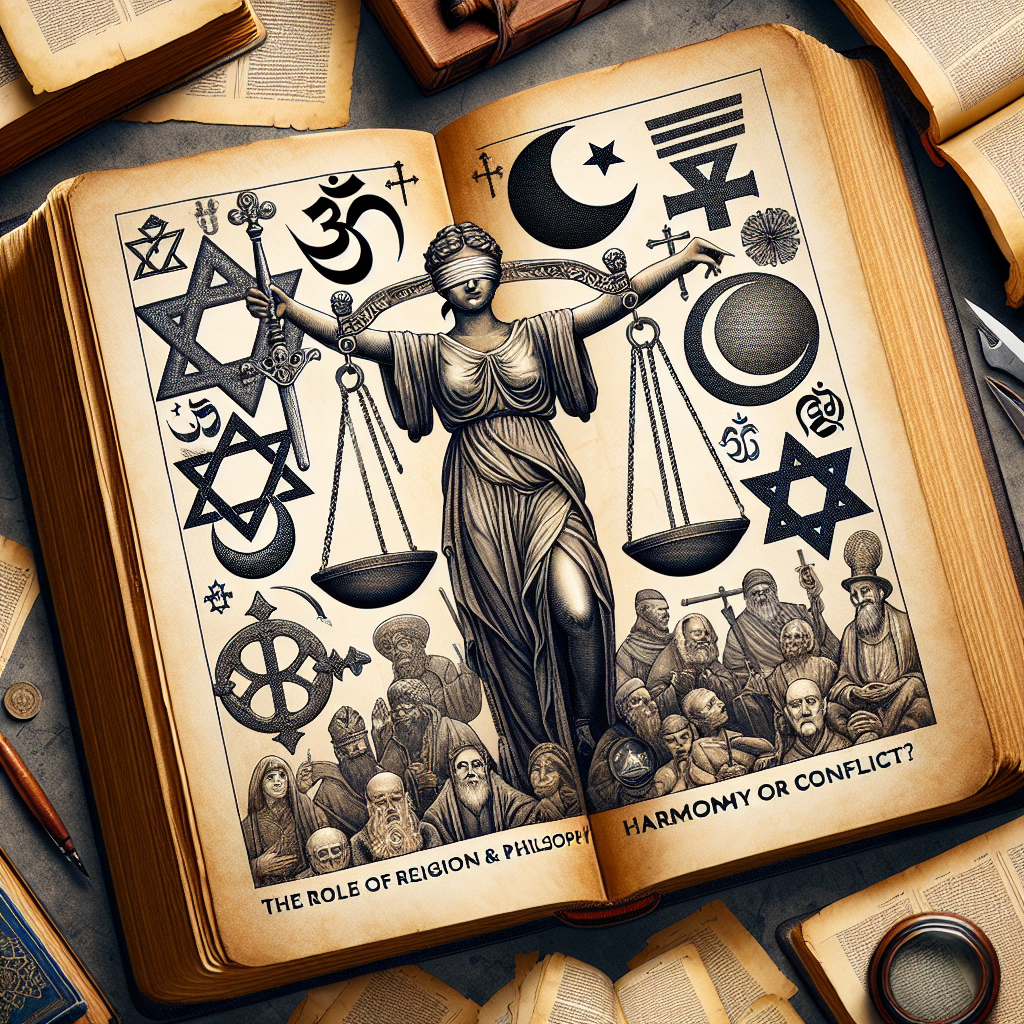The Role of Religion in Libertarian Philosophy: Harmony or Conflict?
Libertarian philosophy stands as a beacon of individual liberty, advocating for minimal government intervention and maximal personal freedom. However, the interplay between libertarianism and religion often sparks debates. Is religion a force for harmony within libertarian frameworks, or does it introduce conflict? In this article, we will dive deep into the relationship between religion and libertarian philosophy, exploring its complexities to provide a balanced view.
Understanding Libertarianism: Core Principles
At its core, libertarianism emphasizes three primary principles: individual liberty, personal responsibility, and free markets. Libertarians argue that individuals should have the right to make choices for themselves, as long as those choices do not infringe upon the rights of others. This philosophical foundation promotes voluntary interactions free from coercive government intervention.
The Intersection of Religion and Individual Liberty
Religion as a Source of Moral Guidance
Many individuals turn to their religious beliefs for moral guidance, which can align with libertarian values. For instance, concepts such as personal responsibility, charity, and the sanctity of life are often echoed in both religious teachings and libertarian thought. These shared values can create a synergy where faith-based individuals embrace libertarian ideals, viewing them as a framework for implementing ethical principles in governance.
The Role of Natural Law
Libertarians often reference natural law — the idea that human beings possess fundamental rights that exist independently from government regulation. Many religious traditions also endorse the notion of natural law, supporting the idea that certain moral truths are universally applicable. This alignment can foster a cooperation between religious adherents and libertarians, both advocating for the protection of individual rights.
Conflict Between Religion and Libertarianism
Authority vs. Freedom
One of the significant points of conflict arises from the concept of authority. Many religions have hierarchies and authoritative structures that dictate belief systems and moral codes. In contrast, libertarianism champions individual autonomy, encouraging people to think and act independently. This tension can create a rift between those who prioritize religious authority and those who prioritize personal freedom without imposed beliefs.
The Role of the State in Enforcing Morality
In some instances, religious groups may seek to influence government policy in ways that align with their moral views. For example, issues surrounding reproductive rights and marriage equality often see religious factions lobbying for laws that restrict personal freedoms based on their doctrines. Libertarians typically oppose such measures, arguing that they infringe upon individual rights and choice.
Case Studies: Religion and Libertarian Movements
The Christian Right and Libertarian Principles
The relationship between the Christian Right and libertarianism is multifaceted. While some Christian conservatives advocate for restrictive policies based on their beliefs, others align with libertarian ideals, especially in advocating for limited government. This division showcases how religion can both conflict and harmonize with libertarian ideology.
The Rise of Secular Libertarianism
In recent years, there has been a notable rise in secular libertarianism, particularly among younger generations who are either agnostic or atheist. This shift indicates a growing perception that individual liberty should not be dictated by religious doctrine, thus creating a more pronounced delineation between religion and libertarianism.
Finding Common Ground: Toward a Harmonious Relationship
Advocating for Pluralism
The growing diversity of beliefs within libertarian communities illustrates the potential for harmony rather than conflict. By advocating for pluralism and tolerance, libertarians can create an inclusive environment that respects differing moral frameworks while maintaining core principles of individual freedom.
Focusing on Shared Values
Recognizing shared values such as personal responsibility, community support, and non-aggression can lead to collaborations between religious individuals and libertarians. By focusing on these commonalities, both groups can work together to promote a society that values freedom of choice and moral agency.
Conclusion: A Coexistence of Beliefs
The role of religion in libertarian philosophy is not a binary choice between harmony and conflict; rather, it is a spectrum where both can exist simultaneously. While differences in belief may lead to tensions, the fundamental principles of individual liberty can serve as a unifying force. By embracing dialogue, promoting tolerance, and focusing on common goals, both religion and libertarianism can coexist and enrich one another in their pursuit of a free society.
Final Thoughts
As we navigate the complex terrain of religion and political philosophy, understanding their interaction is crucial for fostering a landscape that respects individual rights while honoring diverse beliefs. The ongoing dialogue will undoubtedly continue to shape the evolution of libertarian thought and its relationship with religion, making it a vital topic for contemporary discourse.
Share this content:












Post Comment